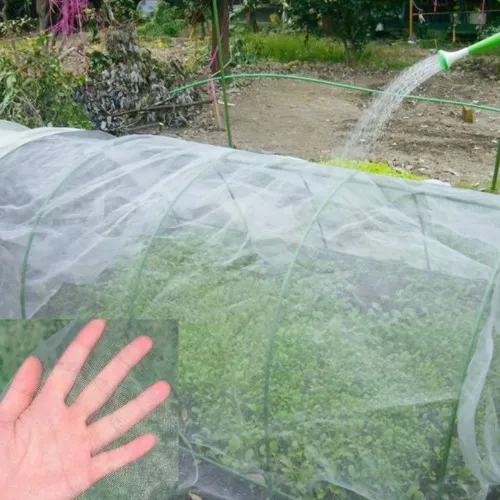-
 Afrikaans
Afrikaans -
 Albanian
Albanian -
 Amharic
Amharic -
 Arabic
Arabic -
 Armenian
Armenian -
 Azerbaijani
Azerbaijani -
 Basque
Basque -
 Belarusian
Belarusian -
 Bengali
Bengali -
 Bosnian
Bosnian -
 Bulgarian
Bulgarian -
 Catalan
Catalan -
 Cebuano
Cebuano -
 China
China -
 Corsican
Corsican -
 Croatian
Croatian -
 Czech
Czech -
 Danish
Danish -
 Dutch
Dutch -
 English
English -
 Esperanto
Esperanto -
 Estonian
Estonian -
 Finnish
Finnish -
 French
French -
 Frisian
Frisian -
 Galician
Galician -
 Georgian
Georgian -
 German
German -
 Greek
Greek -
 Gujarati
Gujarati -
 Haitian Creole
Haitian Creole -
 hausa
hausa -
 hawaiian
hawaiian -
 Hebrew
Hebrew -
 Hindi
Hindi -
 Miao
Miao -
 Hungarian
Hungarian -
 Icelandic
Icelandic -
 igbo
igbo -
 Indonesian
Indonesian -
 irish
irish -
 Italian
Italian -
 Japanese
Japanese -
 Javanese
Javanese -
 Kannada
Kannada -
 kazakh
kazakh -
 Khmer
Khmer -
 Rwandese
Rwandese -
 Korean
Korean -
 Kurdish
Kurdish -
 Kyrgyz
Kyrgyz -
 Lao
Lao -
 Latin
Latin -
 Latvian
Latvian -
 Lithuanian
Lithuanian -
 Luxembourgish
Luxembourgish -
 Macedonian
Macedonian -
 Malgashi
Malgashi -
 Malay
Malay -
 Malayalam
Malayalam -
 Maltese
Maltese -
 Maori
Maori -
 Marathi
Marathi -
 Mongolian
Mongolian -
 Myanmar
Myanmar -
 Nepali
Nepali -
 Norwegian
Norwegian -
 Norwegian
Norwegian -
 Occitan
Occitan -
 Pashto
Pashto -
 Persian
Persian -
 Polish
Polish -
 Portuguese
Portuguese -
 Punjabi
Punjabi -
 Romanian
Romanian -
 Russian
Russian -
 Samoan
Samoan -
 Scottish Gaelic
Scottish Gaelic -
 Serbian
Serbian -
 Sesotho
Sesotho -
 Shona
Shona -
 Sindhi
Sindhi -
 Sinhala
Sinhala -
 Slovak
Slovak -
 Slovenian
Slovenian -
 Somali
Somali -
 Spanish
Spanish -
 Sundanese
Sundanese -
 Swahili
Swahili -
 Swedish
Swedish -
 Tagalog
Tagalog -
 Tajik
Tajik -
 Tamil
Tamil -
 Tatar
Tatar -
 Telugu
Telugu -
 Thai
Thai -
 Turkish
Turkish -
 Turkmen
Turkmen -
 Ukrainian
Ukrainian -
 Urdu
Urdu -
 Uighur
Uighur -
 Uzbek
Uzbek -
 Vietnamese
Vietnamese -
 Welsh
Welsh -
 Bantu
Bantu -
 Yiddish
Yiddish -
 Yoruba
Yoruba -
 Zulu
Zulu
plastic chicken netting
The Versatility and Benefits of Plastic Chicken Netting
When it comes to poultry farming and small-scale gardening, plastic chicken netting plays a pivotal role in ensuring safety and convenience. This versatile material not only protects chickens from predators but also serves various purposes in agricultural and gardening practices. As more people embrace sustainable living and backyard farming, understanding the benefits and applications of plastic chicken netting becomes increasingly important.
What is Plastic Chicken Netting?
Plastic chicken netting, often made from durable polyethylene or polypropylene, is a lightweight, flexible material designed to create enclosures for chickens. The netting typically features small mesh sizes that allow for ventilation while keeping out larger predators such as raccoons, foxes, and hawks. Unlike traditional wire fencing, plastic netting is resistant to rust and corrosion, making it a more sustainable and long-lasting option.
Benefits of Using Plastic Chicken Netting
1. Durability and Longevity One of the primary advantages of plastic chicken netting is its durability. It is resistant to UV rays, ensuring that the material doesn’t degrade quickly when exposed to sunlight. Additionally, it can withstand various weather conditions, making it an ideal choice for outdoor use.
2. Lightweight and Easy to Handle Unlike heavier materials, plastic chicken netting is lightweight, making it easy to install and move. Farmers and gardeners can quickly set up and modify fences and enclosures as necessary, providing flexibility in managing their spaces.
plastic chicken netting

3. Cost-Effective Compared to metal fencing options, plastic netting is often more affordable. This accessibility makes it an attractive choice for small-scale farmers or hobbyists who may have budget constraints but still want effective protection for their poultry.
4. Versatile Applications Beyond protecting chickens, this netting can be utilized in various ways throughout a garden or farm. It can be used to create barriers for other small animals, support climbing plants, protect crops from birds, or even be repurposed for craft projects and DIY home improvements.
5. Ease of Installation Installing plastic chicken netting is typically a straightforward process. It can be secured to wooden or metal posts using zip ties or clips, and no special tools are required. This ease of setup makes it accessible for novice poultry keepers and gardeners alike.
Applications in Gardening
In addition to serving as a protective barrier for chicken coops, plastic chicken netting can be employed in gardening to create trellises for climbing plants such as beans or peas. Gardeners can also use it around raised beds to deter rabbits and other small animals from munching on fresh produce. The lightweight nature of the netting ensures that it does not interfere with plant growth, allowing a healthy ecosystem to thrive.
Conclusion
Plastic chicken netting is a multifunctional tool that can significantly enhance poultry farming and gardening endeavors. Its durability, affordability, and ease of installation make it suitable for various applications beyond just protecting chickens. As more individuals look to create sustainable, self-sufficient living environments, the use of plastic chicken netting will continue to rise. Whether you are safeguarding your poultry from predators or seeking innovative solutions for gardening challenges, plastic chicken netting stands out as a practical and reliable choice. With its many benefits, it's clear that this simple material has a big impact on modern agricultural practices and sustainable living.
-
Why Nylon Mesh Netting is Revolutionizing Industrial and Commercial ApplicationsNewsJun.13,2025
-
Reinventing Reliability with Construction Wire MeshNewsJun.13,2025
-
Protect Your Crops with High-Performance Agricultural Netting SolutionsNewsJun.13,2025
-
Premium Breeding Net Solutions for Modern AquariumsNewsJun.13,2025
-
Precision Filtration Solutions for Industrial and Commercial NeedsNewsJun.13,2025
-
Advanced Industrial Mesh Solutions for Every ApplicationNewsJun.13,2025











